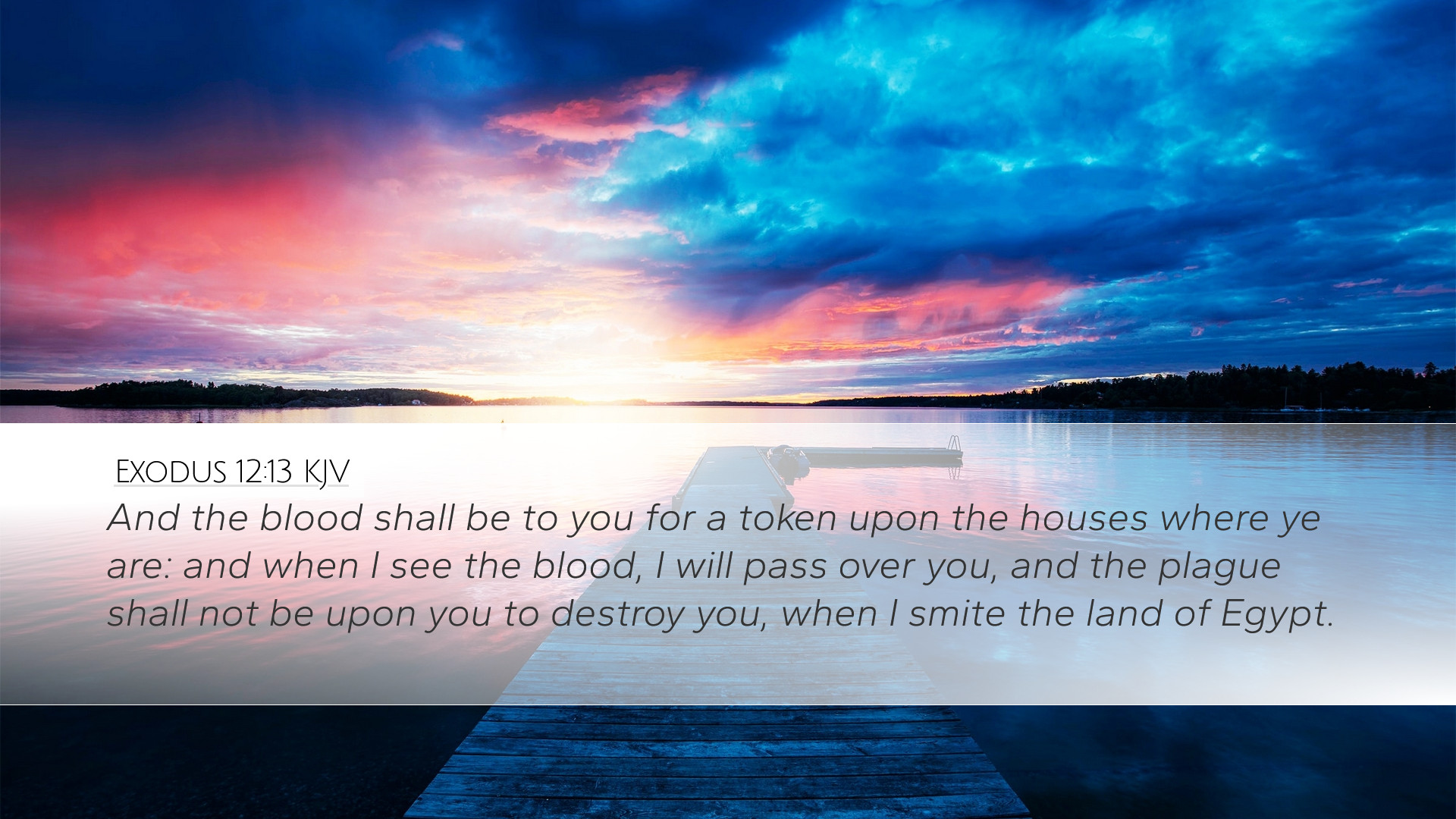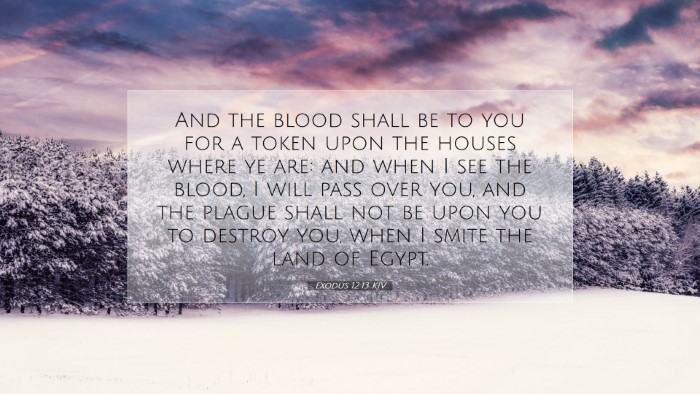Exodus 12:13 - Commentary
Verse: "The blood shall be to you for a token upon the houses where ye are: and when I see the blood, I will pass over you, and the plague shall not be upon you to destroy you, when I smite the land of Egypt."
Introduction
The passage in Exodus 12:13 lies at the heart of the Passover narrative, marking a pivotal moment in the deliverance of the Israelites from Egyptian bondage. This verse emphasizes the significance of the blood of the lamb as a protective symbol, serving both as a sign and a means of salvation. Below is a compiled commentary drawn from respected public domain sources.
Historical Context
This verse occurs within the broader context of the tenth plague in Egypt, which God promised would finally convince Pharaoh to release the Israelites. The blood of the lamb, applied to the doorposts, was a divine sign that determined the fate of the Hebrew households as the Lord enacted judgment over Egypt.
Significance of the Blood
Symbol of Salvation: The blood denotes deliverance, which signifies the sacrificial system that would later be established in the law. Matthew Henry points out that the blood served as a "token" for the Lord, indicating that where the blood was applied, His judgment on sin would be stayed.
Divine Assurance: Albert Barnes emphasizes the promise contained within this verse: God Himself will 'see the blood' and will act. This demonstrates the assurance that comes from faith in God's provision for rescue, echoing the themes of grace and mercy prevalent throughout Scripture.
Theological Implications
- Typology of Christ: Adam Clarke highlights that the lamb's blood is an early foreshadowing of Christ's sacrificial death. Just as the blood protected the Israelites from death, so too does the blood of Christ protect believers from eternal judgment.
- The Nature of Faith: The act of applying the blood required faith from the Israelites. It was not merely the blood itself but the obedience and faith in God's command that brought about salvation. This encapsulates a vital truth about the nature of faith throughout the Biblical narrative.
Practical Applications
This verse offers profound lessons for believers today:
- Faith in God's Promises: Just as the Israelites had to trust God's promise that they would be spared, believers are called to trust in Christ as the ultimate Lamb whose blood redeems and protects.
- The Call for Obedience: The necessity of applying the blood illustrates the importance of obedience in the life of a believer. It serves as a reminder that faith must be enacted through action.
- Community Remembrance: The institution of Passover creates a framework for communal remembrance of God's deliverance. Similarly, believers are encouraged to regularly partake in Communion, showing the ongoing relevance of Christ's sacrifice.
Conclusion
Exodus 12:13 encapsulates critical themes of salvation, protection, and faith. It symbolizes the righteous judgment of God and His provision for deliverance through the Lamb's blood. As we explore its depths, we gain insights that resonate throughout the biblical text, extending into the New Testament and culminating in the work of Christ. Pastors, students, and theologians alike can glean from these rich theological implications, ensuring that the core message of redemption continues to impact lives.


